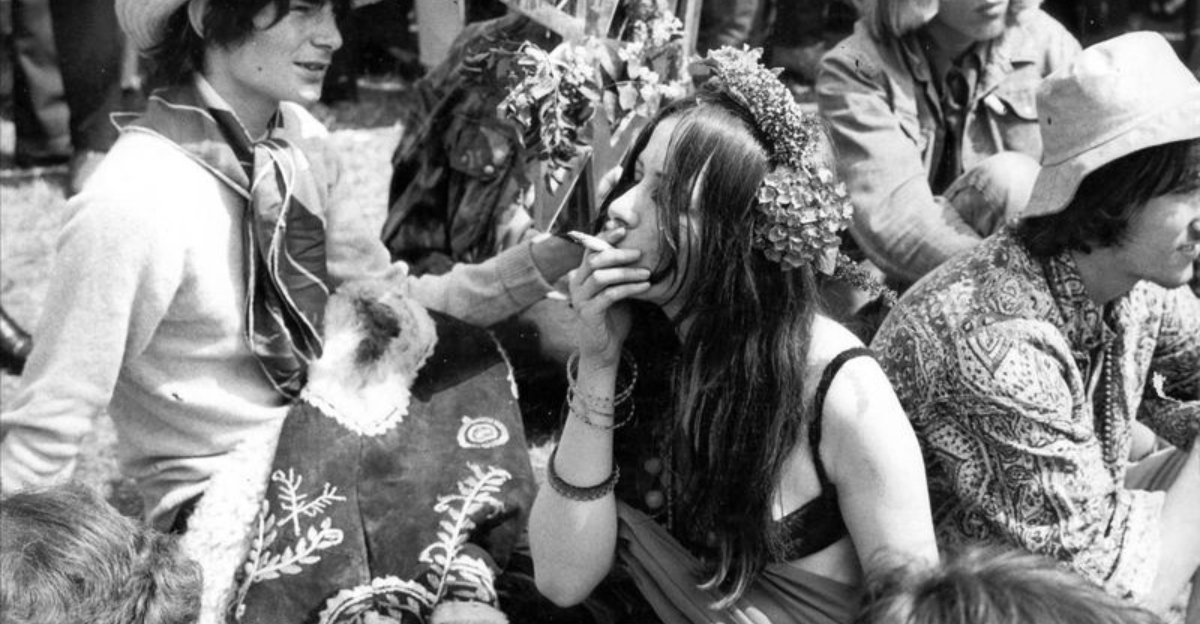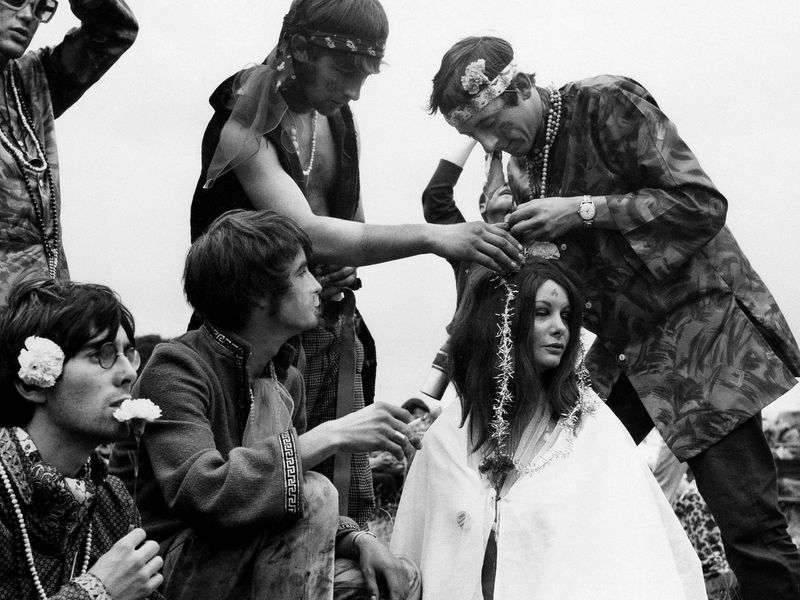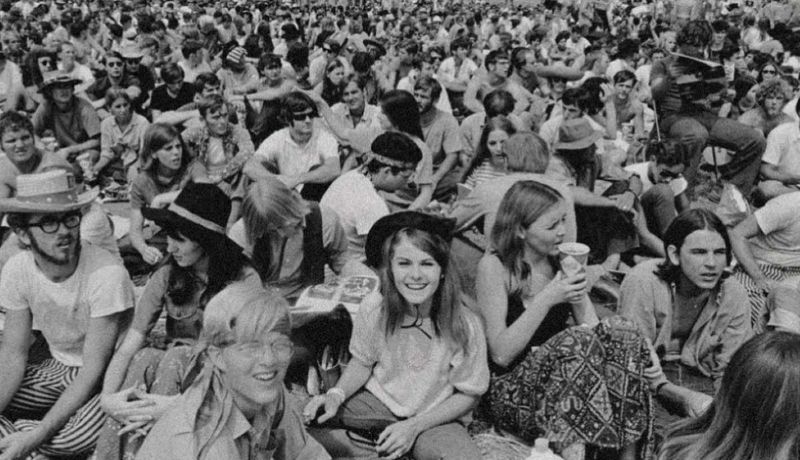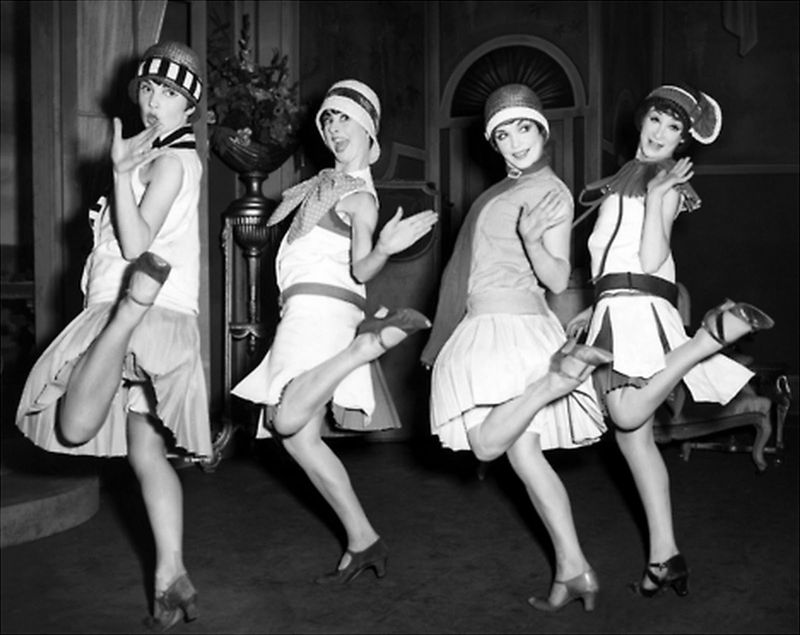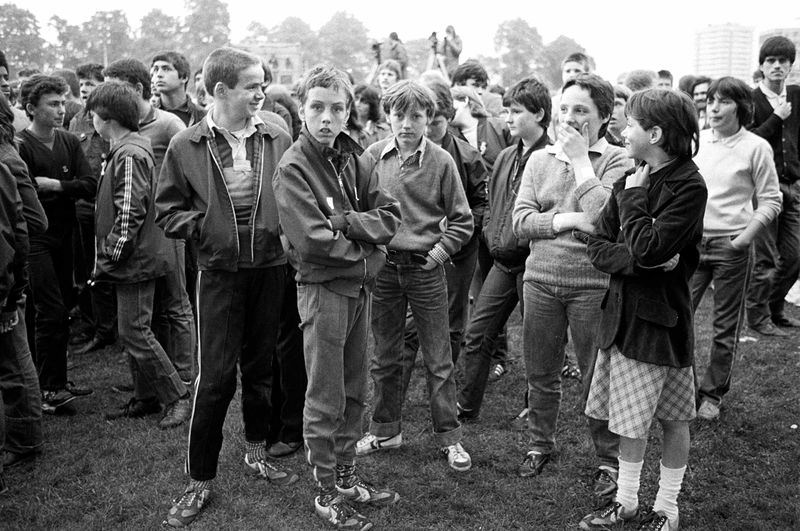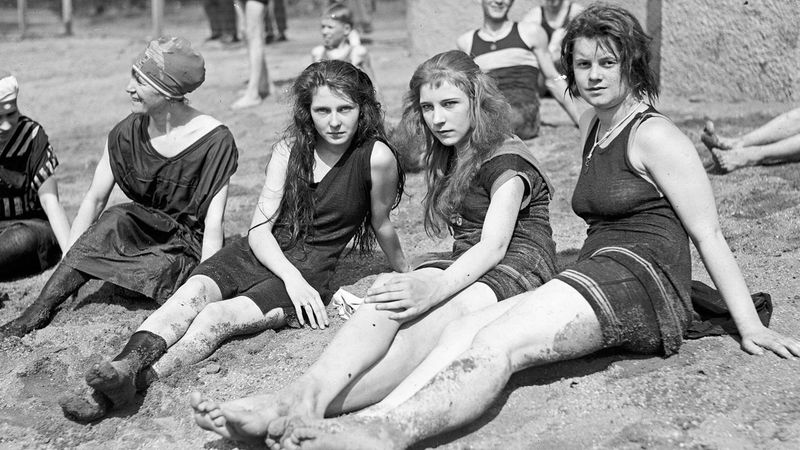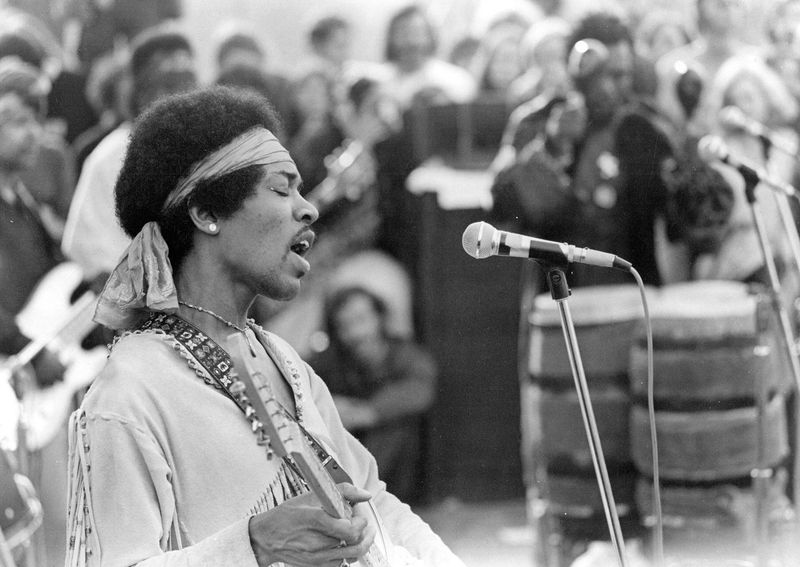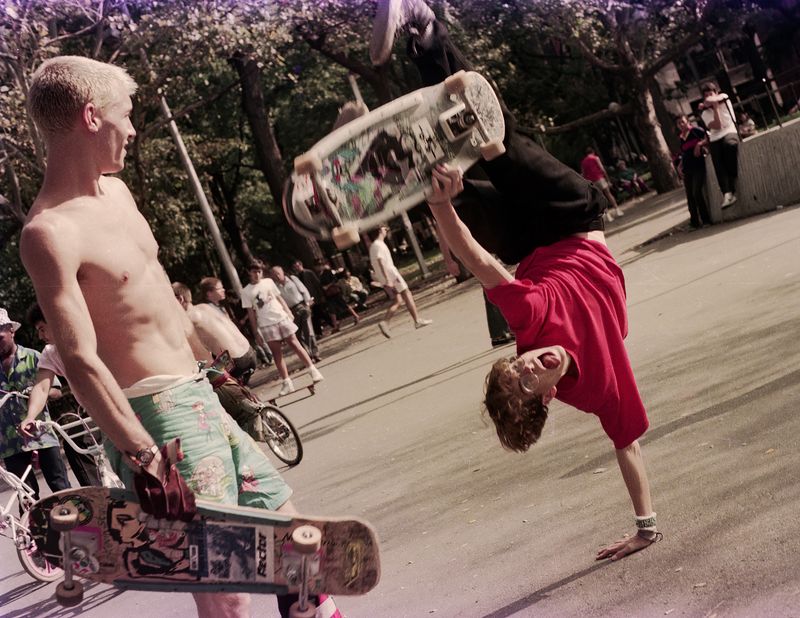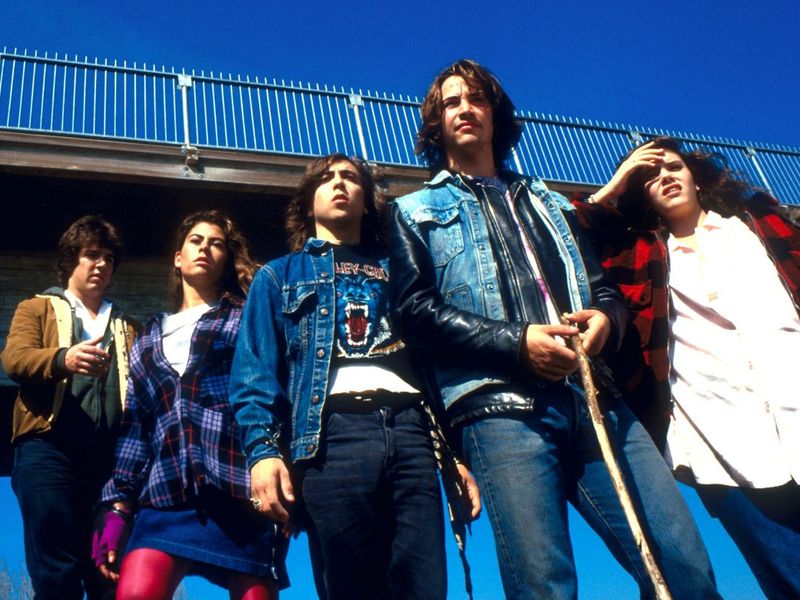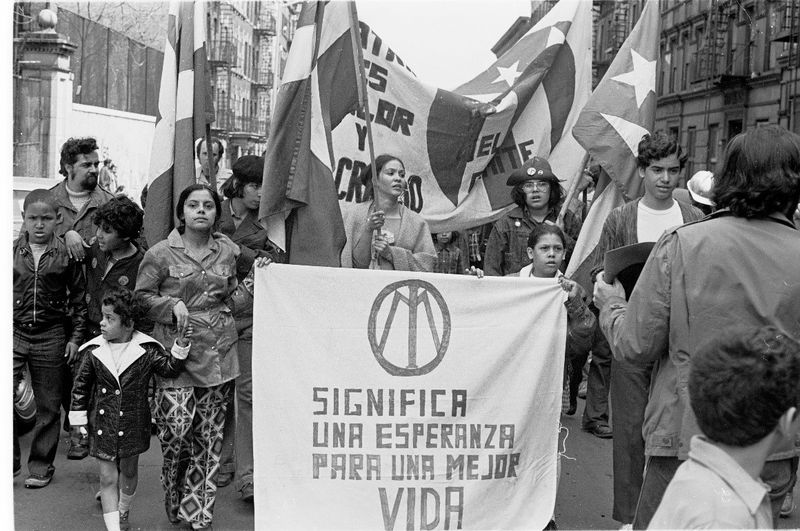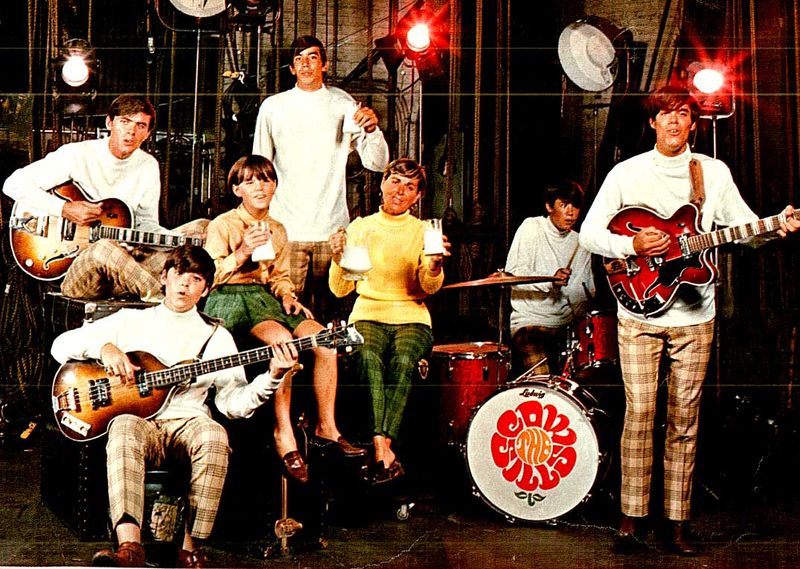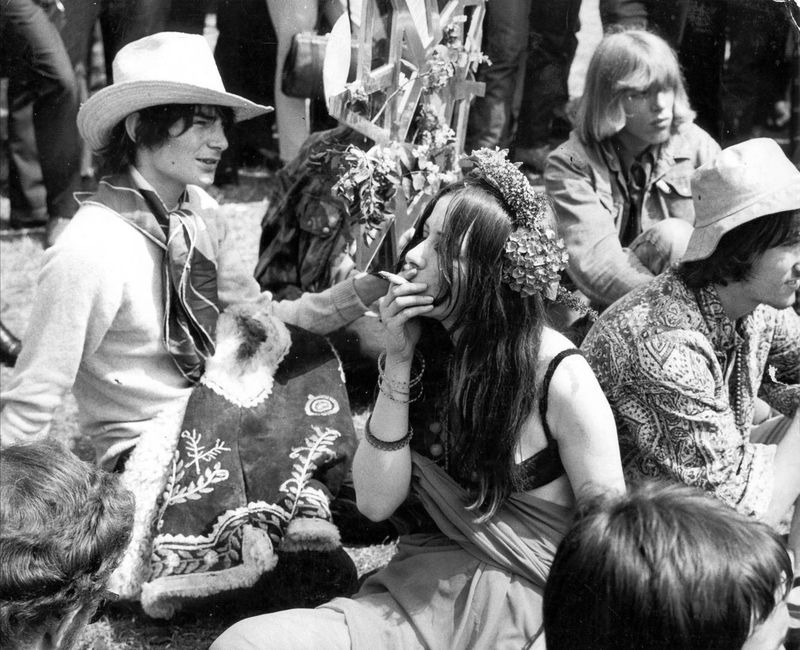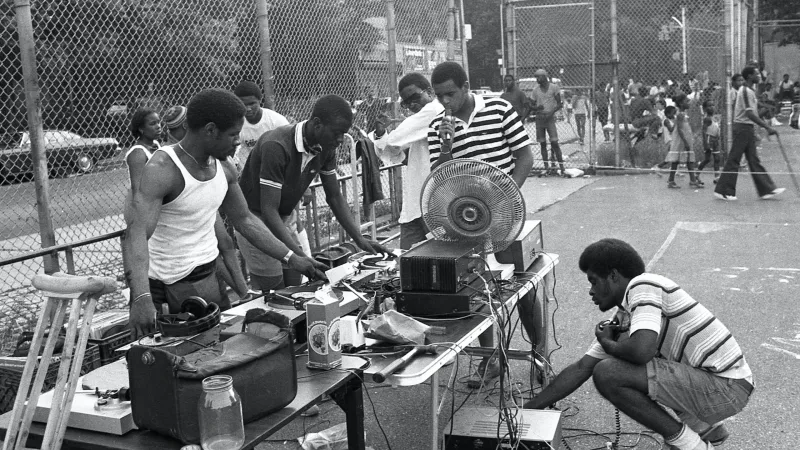Language evolves, and so does the slang that accompanies it. The boomer generation, known for their cultural influence and distinct language styles, has contributed some memorable slang terms.
While some of these terms have stood the test of time, others make us cringe today. Here, we explore 16 boomer slang terms that perhaps should retire gracefully.
1. Groovy
“Groovy” was the epitome of cool in the 1960s, synonymous with the vibrant, psychedelic culture of the era. Today, it feels like a relic of a bygone age, evoking images of bell-bottom jeans and tie-dye shirts.
While it once represented a carefree spirit, using it now often elicits eye rolls from younger generations. Reviving it in conversation might make you sound dated rather than trendy.
Instead, try more contemporary expressions like “cool” or “awesome” to connect with today’s audience. Keep “groovy” in the archives as a charming historical reference rather than a current descriptor.
2. Far Out
The phrase “far out” emerged from the counterculture movement, suggesting something extraordinary or mind-blowing. It captured the adventurous spirit of a generation exploring new ideas and experiences.
However, in modern parlance, it can feel out of place and even slightly pretentious. When attempting to express wonder or surprise today, opting for phrases that are more in line with current vernacular might be advisable.
Embrace expressions that resonate with today’s cultural nuances, leaving “far out” as a nostalgic echo of the past. This way, communication remains fresh and relatable.
3. Cat’s Pajamas
The whimsical phrase “cat’s pajamas” was used to denote something or someone exceptional. Originating from the jazz era, it painted a picture of elegance and sophistication.
Fast forward decades later, and its charm has waned, making it sound more quaint than chic. Younger generations might find it amusing but not particularly useful in everyday conversations.
If you want to highlight excellence today, simpler and more direct adjectives such as “amazing” or “fantastic” might be better suited. Let this phrase rest in the annals of quirky and playful linguistic history.
4. Hip
Being “hip” was once the ultimate compliment, labeling someone as in-the-know or fashionable. With time, the term has become somewhat ironic, often used to mock those desperately trying to appear trendy.
It’s a reminder of how language can age, leaving once-popular terms sounding outdated. Today, striving to be genuine and authentic is more appreciated than chasing transient trends.
Use terms that reflect the current zeitgeist while being true to yourself. “Hip” can remain in our vocabulary as a nostalgic nod to the past but might not serve well in modern contexts.
5. Bummer
In the 1970s, “bummer” succinctly captured feelings of disappointment or regret. The word became a staple in expressing empathy or shared dissatisfaction. Yet, today it can sound a bit trivial or less impactful when addressing serious concerns.
In our fast-paced world, language has evolved to demand more nuanced expressions of emotion. To communicate effectively, especially in professional settings, consider using terms that carry the weight of the situation appropriately.
“Bummer” might still find its place in casual chats but consider more expressive alternatives when needed.
6. Golly Gee
“Golly gee” is a quaint expression of surprise or wonder that harkens back to the simpler times of mid-20th-century Americana. Its wholesome, almost childlike innocence can sound charming yet out of touch in today’s more complex world.
While it evokes nostalgia, it may not effectively convey genuine surprise or excitement in contemporary conversations.
As society has evolved, our expressions of shock have become more varied and sophisticated. Instead of relying on this dated phrase, explore newer, more relevant ways to express surprise that resonate with today’s audiences.
7. Swell
The term “swell” was once a staple of positive affirmation, conjuring images of sun-drenched beaches and carefree days. Today, it can sound overly simplistic, lacking the nuanced meaning that modern expressions provide.
When describing something positively, contemporary slang offers a rich palette of choices that better capture the complexities of modern emotions. While “swell” may still appear endearing to some, it’s often reserved for ironic or humorous contexts.
Let it serve as a linguistic snapshot of a simpler time, while embracing more dynamic expressions that align with today’s cultural landscape.
8. Dig It
“Dig it” once signified understanding or approval, often heard among those embracing the counterculture or beatnik movements. Its informal and relaxed tone fit the era’s casual communication style.
However, as language has evolved, it can now seem somewhat cheesy or forced when used outside its historical context. When trying to convey understanding today, clearer or more direct language often works best.
While “dig it” might still be fun in certain nostalgic or retro settings, consider using terms that align with the clarity and immediacy expected in modern conversations.
9. Rad
Short for radical, “rad” became a go-to word for expressing admiration or excitement in the 1980s. Its association with the skateboarding and extreme sports cultures gave it an edgy flair.
Despite its past popularity, using “rad” today can sometimes feel outdated or as if one is trying too hard to capture a youthful spirit.
Modern slang offers a plethora of alternatives that resonate more with today’s audience without sounding forced. Save “rad” for those moments when you’re indulging in nostalgia or want to inject a bit of retro flair into your conversations.
10. Cool Beans
“Cool beans” was an expression of enthusiastic approval that gained traction in the 1980s and 1990s. It combined the ubiquitous “cool” with a playful twist, making it memorable for a time.
However, in today’s conversations, it can sound forced or overly quirky, as language has shifted towards more straightforward and concise expressions of approval. Consider using phrases that feel more natural and in tune with the current linguistic landscape.
While “cool beans” might still bring a smile for its nostalgia factor, it often finds its place more in jest than in earnest dialogue.
11. Right On
The phrase “right on” was a rallying cry for solidarity and agreement during the social movements of the 1960s and 70s. It embodied the spirit of activism and camaraderie, encouraging unity and shared purpose.
In contemporary discourse, it can seem somewhat dated, especially when more direct ways of expressing agreement are available. While it may evoke a sense of historical awareness, in today’s quickly evolving communication styles, clarity and brevity are often preferred.
Consider integrating more current expressions of agreement that resonate with today’s fast-paced and interconnected world.
12. Neat
Once a widely-used term to describe something excellent or impressive, “neat” now often feels understated and lacking punch.
The simplicity that once made it effective now sometimes renders it insufficient in conveying the full spectrum of enthusiasm or admiration. As conversations have evolved, so too have the words we use to express our emotions.
Embracing more vibrant and vivid language can enhance communication, making it more engaging and impactful. While “neat” might still be appropriate in certain contexts, exploring other expressive options can often yield more satisfying interactions today.
13. Funky
Originally used to describe music with a strong rhythm and groove, “funky” evolved to capture anything unconventional or stylish. Its unique flair made it popular among various creative circles.
However, as language and fashion have moved on, calling something “funky” might not resonate in the same way it once did. In modern conversations, it can sound somewhat outdated or niche.
To describe something fresh and exciting today, consider using language that reflects current trends and cultural moments. Let “funky” remain a tribute to its musical roots, while embracing the ever-evolving lexicon.
14. Jive Turkey
A playful yet derogatory term, “jive turkey” emerged in the 1970s to describe someone being insincere or phony. It was part of the colorful vernacular that characterized the era.
While its humor and creativity remain appreciated, the phrase can feel antiquated in modern conversations. As we strive for clarity and authenticity today, more direct language often proves more effective.
“Jive turkey” might still find a place in humorous or nostalgic settings, but its usage is best limited to contexts where its retro charm is understood and appreciated. Opt for more straightforward terms in genuine discourse.
15. Word
In the realm of hip-hop and street culture, “word” became a succinct affirmation or agreement during the late 20th century. Its simplicity and directness made it a popular interjection.
However, as language has evolved, the term can seem a bit out of sync with current conversational styles. While it still holds cultural significance, using it today might not carry the same impact unless within specific communities or contexts.
To express agreement or understanding more broadly, consider phrases that resonate with a wider audience, keeping communication inclusive and contemporary.
16. Tubular
Popularized by the surfing culture of the 1980s, “tubular” described something exceptionally cool or exciting, akin to riding inside the perfect wave. While it captured the exuberance of a sun-soaked lifestyle, its usage today can sound outmoded.
With the constant evolution of slang, words like “tubular” are often seen as relics of their time. If you’re looking to express excitement, today’s lexicon offers a range of options that feel more relevant and dynamic.
While “tubular” can still bring a smile for its nostalgic charm, incorporating modern expressions ensures your language stays fresh and engaging.
